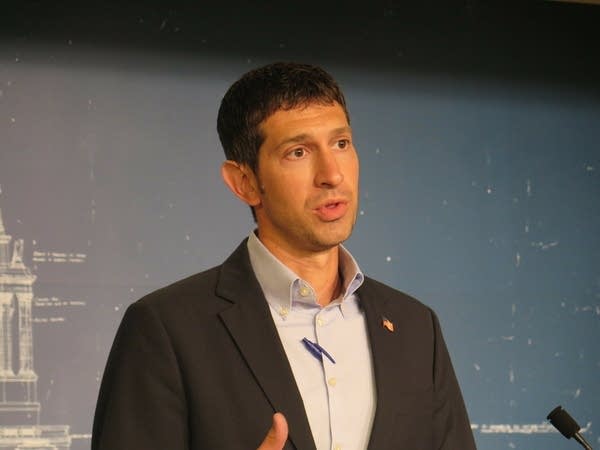Big surplus, big stakes as Legislature reconvenes

Go Deeper.
Create an account or log in to save stories.
Like this?
Thanks for liking this story! We have added it to a list of your favorite stories.
Lawmakers return to the Minnesota Capitol Monday with an overflowing state treasury and lots of ideas about what to do with a projected $7.7 billion budget surplus, even though it’s not the traditional year to focus on the budget.
COVID-19 hasn’t been the economy killer that many feared. Some sectors thrived and pushed tax revenues far beyond expectations.
Gov. Tim Walz says some people were left behind and need a boost. Overall, the DFL governor is bullish on the session and its potential results.
“Our kids need us to do better for them,” Walz said. “Each and every one of us needs to show a little grace to one another. And, I for one, would like to see us just get a good session done, get some money back in the hands of Minnesotans, reduce costs for working families, build some roads and bridges and move on. And, that’s what I hope happens.”
Turn Up Your Support
MPR News helps you turn down the noise and build shared understanding. Turn up your support for this public resource and keep trusted journalism accessible to all.
Walz rolled out his 2022 agenda one piece at a time in the weeks leading up to the session. He wants a $2.7 billion package of public construction projects, which would be a record-size bonding bill if it passes. He wants increased education funding as well as paid family and medical leave.
The governor is also proposing what he calls “Walz checks,” which are $700 million in one-time direct payments to income-eligible Minnesotans in the amount of $175 or $350.

"There's no reason that we shouldn't get relief out to families,” Walz said. “There's no reason we shouldn't get some tax cuts to the middle class and also invest in child care and health care, some education and do so in a fiscally responsible manner."
The session negotiations will play out in an election year when all legislative seats are on the ballot and district boundaries will be redrawn.
Lawmakers have a couple of weeks to try to resolve the once-a-decade job of redistricting. They have until Feb. 15 to agree on new congressional and legislative district maps — or the courts take over. It's a safe bet to expect the courts to finish the job as they have for decades in Minnesota.
Also still hanging are bonus payments to front-line pandemic workers. Lawmakers earmarked $250 million for that last year, but a commission deadlocked on the details of how many workers should get the bonuses and how much.
Republicans in the Minnesota Senate want to return even more of the surplus to Minnesotans. They’re proposing ongoing tax breaks for businesses and individuals. Senate Majority Leader Jeremy Miller, R-Winona, said they'll push for an elimination of any tax on Social Security income.
“We’re one of only a handful of states that still taxes Social Security income, and we should not be doing it,” Miller said. “There’s no need to tax our senior citizens.”

Republicans are also promising tax rate cuts that Miller said would benefit all middle-class Minnesotans, but they have not put a price tag on that yet.
The number one issue Republicans plan to push is public safety.
With crime on the rise, they’re stressing the need for “law and order.” The Senate Republican plan would increase prison sentences for carjacking and other violent crimes, prevent county attorneys from prosecuting ignoring low-level crimes and help cities hire more police officers.
“Minnesotans should feel safe in the communities they live, work and raise a family,” Miller said. “Simply put, more cops result in less crime.”
Democrats in the Minnesota House have laid out an agenda that addresses many of the same policy concerns as the governor. Their plan would also spend much of the surplus. The DFL public safety plan includes grant money for community policing, law enforcement investigations and nonprofit organizations that work on violence prevention.
House Speaker Melissa Hortman, DFL-Brooklyn Park, said the large surplus creates a unique situation.
“There’s a lot of post-COVID items to deal with, and we have the money to pay attention to those things,” Hortman said.

The COVID-related list includes front-line worker bonuses and replenishing the unemployment insurance fund, Hortman said. The unemployment measure alone could cost as much as $2.7 billion, but it has bipartisan support, unlike another top House DFL priority: paid family leave and earned sick and safe time.
Hortman also expects bipartisan support in the House for a bonding bill. She's just not sure how big the borrowing measure might be.
''It's hard to tell you what the bill might look like,” Hortman said, “because we'll sculpt that hunk of clay all session."


